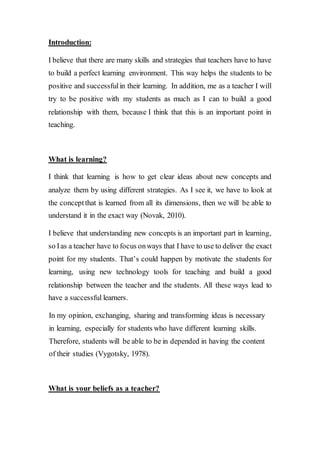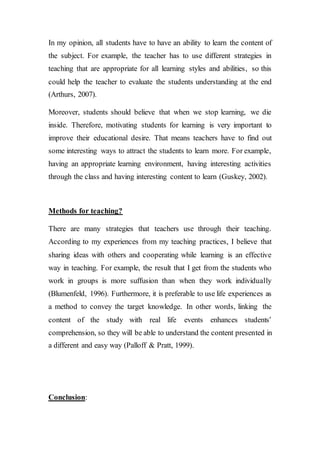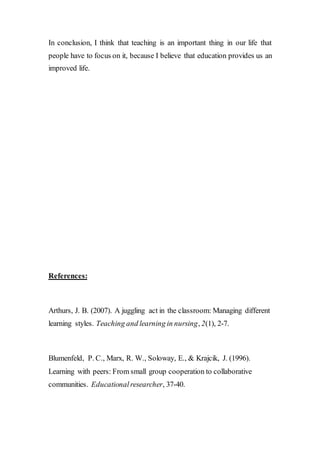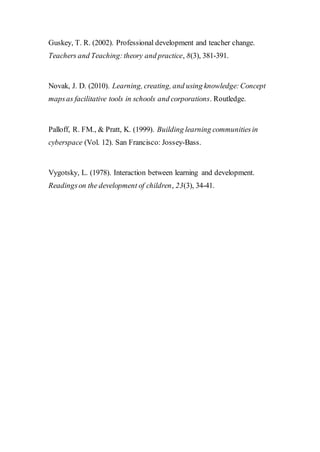The document discusses the author's beliefs about teaching and learning. The author believes that building positive relationships with students and using various teaching strategies tailored to different learning styles are important for creating an effective learning environment. The author also thinks that motivating students, sharing ideas, and linking lessons to real-world examples can improve learning and understanding. Effective teaching requires finding ways to engage students and spark their interest in continual learning.



